

Before the third of the Batman trilogy hit theaters, I had heard that The Dark Knight Rises was a film without hope, with a long and dreary narrative that never loosens its grip. It leaves the viewer without a sense of answers.
I saw it and left confused. It saw it again, and left confused again. All the while, I kept wondering if this interpretive effort would pay off. Maybe it’s just another movie and lacks the ideological significance of the previous two.
I too had read several reviews that had condemned the film from a left-wing point view, arguing that it took a cheap shot at the Occupy Wall Street movement, suggesting that it consists mainly of brainless menaces who are easily manipulated by a strongman leader. The filmmakers deny this.
Regardless, this was probably the best political feature of the film.
However, the merit of its warning about left-wing populism was seriously compromised by the portrayal of the Gotham cops as saintly guardians of the social order. Neoconservatives loved this part of the film, made all the better to them because the prisons are full and Gotham is ruled by a civilian-led authoritarian regime of tight law and surveillance — the neocon dream come true.
What’s going on here? Why is the movie so full of mixed messages and, in the end, so unsatisfying?
Finally, it hit me. And this will be perfectly obvious once you hear it.
The problem is that the film gives Gotham (and us) a choice between two forms of despotism, one “left wing” and one “right wing,” and asks us to choose the lesser of two evils. We can have one of two systems: bureaucratic/authoritarian or revolutionary/dictatorial. The idea of a self-managing society is just out of the question. The film biases that choice by showing one as offered by the evil villain and the other by a corrupt, yet stable status quo.
[continue reading…]
Help Promote Prometheus Unbound by Sharing this Post
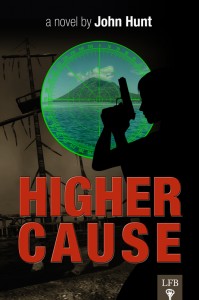
This review is part of a series covering each installment of the serialized novel Higher Cause, written by John Hunt and published by Laissez Faire Books. To catch up, start with the announcement, the book’s link-rich table of contents, and the first review.
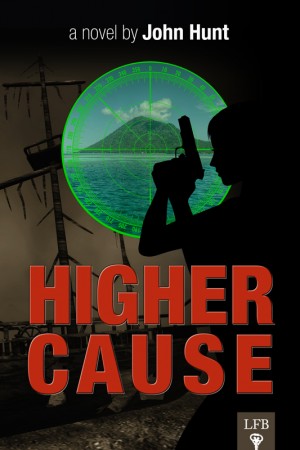
The latest installment consists of three chapters. The story continues to introduce some new characters, but now, separated characters are slowly being brought together.
In the first chapter, we revisit Jeff, one of the characters introduced earlier, as he meets someone whose patronymic suggests a familial connection with another character. There is also an important bit of information at the end of the chapter, something that a reader will probably be expecting. It gives a little jolt of electricity to the story and hints at suspense to come.
The next chapter is the first one that I would offer serious criticism to. It begins by introducing a new character, and I would say that there are too many unimportant details, or details that can come out in another way. This in itself is not a big issue, but midway through the chapter this new character, a recently laid-off or perhaps fired professor comes home to find someone waiting for him there. Suddenly, the narrative jumps out of the head of the professor and into the head of the newcomer, and then we are treated to a few paragraphs explaining who this person is and what he is like. The chapter is near to 2,500 words, and most of it is exposition with a jolting point-of-view change in the middle. It does serve a plot point, but I would have preferred to see it achieve this with more economy.
[continue reading…]
Help Promote Prometheus Unbound by Sharing this Post
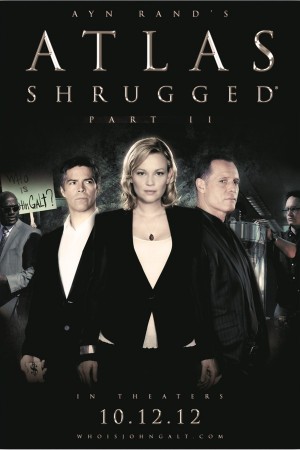

Reason.com has had some interesting posts recently.
One is on the subject of fan fiction vs. copyright. Does fan fiction count as a copyright violation? What should authors think or do about it? My response to the first question is: Who cares? Copyright is an illegitimate government grant of monopoly privilege that gives people legal ownership over that which cannot really be property, ideas, and which cannot be enforced without infringing on the prior real property rights (in one’s body and physical objects) of others. My response to the second question is: Authors should embrace fan fiction as community-building and free advertising. Fighting fan fiction only makes you a dick, a criminal (in my view) dick if you sue.
Anyway, now that I’ve worked that rant out of my system, check out the post Fan Fiction vs. Copyright – Q&A with Rebecca Tushnet and watch the interview below. Tushnet is “a member of the Organization for Transformative Works, Tushnet works to defend fan fiction creators caught in the legal debate between protected intellectual property and fair use.” I’ve previously discussed how Angry Robot Books is embracing fan fiction, if not as much as we libertarians and fiction fans would like.
[continue reading…]
Help Promote Prometheus Unbound by Sharing this Post
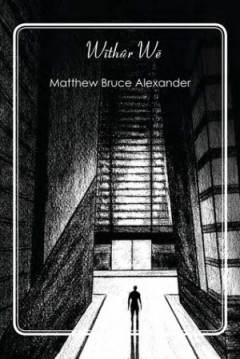
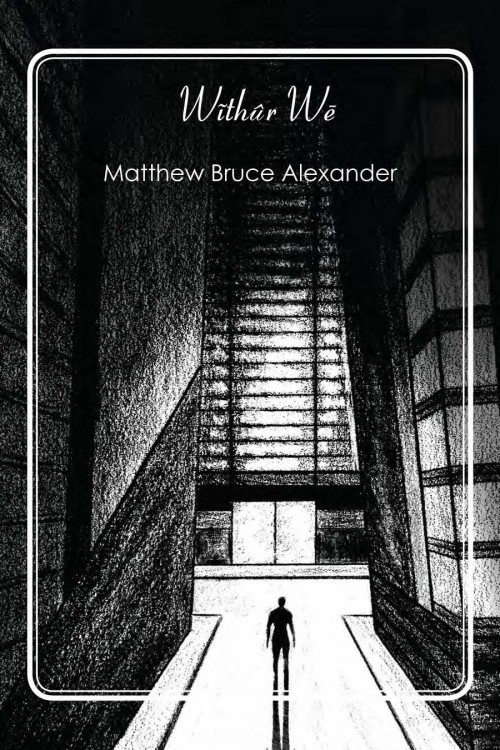
For the month of August we are reading and discussing Wĭthûr Wē, a science fiction novel influenced by anarcho-capitalism and Austrian School economics, written by our own Matthew Alexander.
Centuries hence, Man, seemingly alone in the universe, slowly spreads his civilizations across his corner of the galaxy. Tyrants vie for power, and in their fierce grip the colonies of the Milky Way are suffocating. In this society of many billions, a young marine, a highly trained war hero, returns home from his tour of duty. Physically powerful yet shy, awkward and unable to sway the masses with pretty speeches, Alistair Ashley 3nn makes a decision to strike at the hierarchy the only way he can. His decision starts him on a grand adventure, and as he is carried along by forces beyond his control, he comes to confront an ancient secret, one which may reveal humanity’s future.
You can get a free PDF copy at the author’s website. The book can be purchased for Kindle or in trade paperback at Amazon.com. Your purchase via our affiliate links will help support both Matthew’s writing and our work here at Prometheus Unbound.
Join us as we read and discuss Wĭthûr Wē.
You need not have voted on this month’s selection to join in the discussion, but you do need to be registered and logged in on this site to access the book club’s dedicated forums.
Book Giveaway / Newsletter Signup Results
Last month we gave away free Kindle (mobi) copies of Wĭthûr Wē in exchange for signing up for our email newsletter. We think the campaign was a big success. We attracted more than 80 new subscribers, more than quintupling our mailing list, and gave away at least that many copies of Matthew’s novel.
[continue reading…]
Help Promote Prometheus Unbound by Sharing this Post

This review is part of a series covering each installment of the serialized novel Higher Cause, written by John Hunt and published by Laissez Faire Books. To catch up, start with the announcement, the book’s link-rich table of contents, and the first review.

The next installment of John Hunt’s serialized novel, Higher Cause, is out and ready for reading. Last time we met a couple characters and got a glimpse of a plot. This time we follow one of the two characters, Petur Bjarnasson, as he continues to recruit. We also find out more details of his plan, while the shadow of the villain is cast in Amsterdam.
Mr. Hunt is assembling the pieces of a real thriller — so far. While Petur is recruiting, he runs into his first obstacle, which tells him and us that someone is on to him and does not want him to succeed. He also has an unlikely encounter with someone he had glimpsed in another city. Petur invents an excuse for it, but as readers we suspect something else is up. The locations are also interesting, and it looks like we will be hopping all over the world over the course of the story.
Chapter three is a repetition of chapter one, with a different location and a new target. This time, Petur is recruiting a man named Thomas Standall to invest in his vision. The danger here is for the story to lag as we go over ground we have already gone over. Hunt does a good job of feeding us more information about the plan this time, which does go some way to keeping our interest, but I still got a bit of a restless feeling at the inevitable repetition. If I were to give advice on the structure of the opening, I would suggest omitting the prologue and, in chapter one, showing us only the very end of the sales pitch, where Onbacher agrees to invest $400 million. With this little bit of information and next to nothing else, curiosity would be piqued. Then, in chapter three, we can see the recruitment process rather than have to see a lot of it twice in a short time.
[continue reading…]
Help Promote Prometheus Unbound by Sharing this Post

This review is part of a series covering each installment of the serialized novel Higher Cause, written by John Hunt and published by Laissez Faire Books. To catch up, start with the announcement, the book’s link-rich table of contents, and our initial news coverage.

Laissez Faire Books is serializing a novel by John Hunt, a libertarian and student of Austrian Economics. Titled Higher Cause, it promises to be an epic adventure story. The first installment (of 22) consists of a prologue and the first two chapters. The remaining installments will be published every Wednesday, followed by my reviews every Friday.
I am generally in favor of eschewing prologues, and though the present one was not uninteresting, at this point I feel it was unnecessary. It seemed to set up a mystery, but then the mystery was solved at the end of the first chapter. Also, all the major points of the prologue were covered in chapter one, in brief. I would say it was better to just get to the first chapter.
However, the author does a good job of enticing us with vague but interesting possibilities. In chapter one we meet Petur, who comes to a rich investor with a proposal in a manner reminiscent of Atlas Shrugged. The details are withheld from the reader, but some great error that threatens humanity has been discovered, and Petur is attempting to set things right, before it is too late, with a market-oriented plan of attack.
In the second chapter we meet Jeff, an undercover agent trying to throw a monkey wrench in the gears of a Mexican drug lord’s machine. He runs into a little trouble and a small twist at the end.
[continue reading…]
Help Promote Prometheus Unbound by Sharing this Post


Mild Spoilers
Hans Zimmer has composed an unrelenting score that is being blasted in movie theaters across the world right now. It is not bad music by any means, but why it is launched like an assault at the eardrums I cannot fathom. Underneath this score, if one listens carefully, one can hear a movie playing, accompanied by corresponding images on a screen. The movie is called The Dark Knight Rises, and it is considered a part of Christopher Nolan’s Batman trilogy on the grounds that Batman makes a couple brief appearances in it.
It takes place eight years after the previous installment. Batman, erroneously believed to be the murderer of Harvey Dent, has disappeared, and his alter ego, billionaire Bruce Wayne, now lives as a recluse. A new super villain, Bane (Tom Hardy), has emerged to wreak havoc in Gotham City. Catwoman (Anne Hathaway) is also on the prowl, though whether she is a villain or heroine is less certain until the end of the film.
Bruce Wayne is moved to return the Caped Crusader to the streets of Gotham City as the Bane menace grows. He is pushed to this decision by a police officer with amazing faith in his pure hunch that Bruce Wayne is somehow connected to Batman, as well as the theft of his belongings and personal information by Catwoman, who was working for him as a maid in order to position herself for the strike, and who was helped along by an assistant we never really get to know, but both of them are radical egalitarians with some connection to Bane, who it turns out was behind the guy who hired Catwoman to burgle Bruce Wayne because he wants the information to set Wayne up so that he can financially ruin Wayne so that his people can take over Wayne Enterprises in the ensuing bankruptcy so that he, because he knows who Batman is, can get access to Batman’s arsenal so he can use it to further his plans to…
You know, it’s actually a little complicated. Much like its predecessor. Indeed, the movie shares all of its predecessor’s flaws but got shortchanged on the strengths.
[continue reading…]
Help Promote Prometheus Unbound by Sharing this Post















